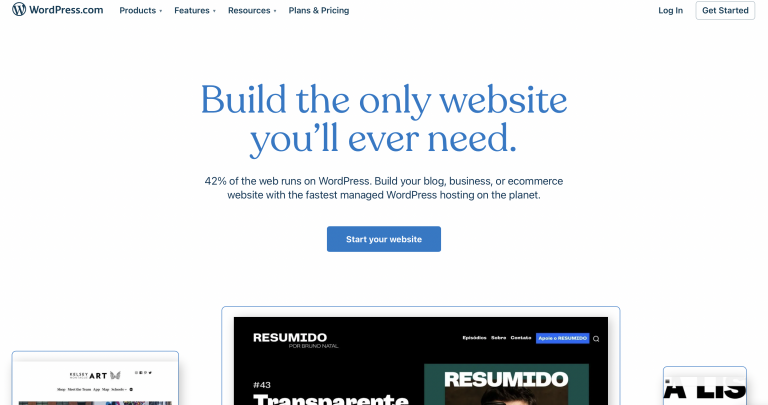A website is the singular most important marketing tool for most businesses. Customers, suppliers, donors, partners – anyone who interacts with your business will visit your website at some stage. But once you have a website, how do you manage and edit the content?
First introduced in 2003, WordPress is the most popular website building software on the market. Originally a blogging software, WordPress has now become the content management platform of choice across the web. WordPress allows you to easily edit your website content without worrying about changing and of the coding that runs the site.
Who uses WordPress?
WordPress operates approximately one-third of the world’s websites, from small personal blogs to complicated sites of major corporations like Sony and NBC. WordPress is an ‘open-source’ site builder and content management system, meaning users can install the base software for free. But it’s WordPress’ unique features and wide range of add-ons (plugins) that make it the most popular content management system in use today.

Benefits of using WordPress
1. User-friendly
2. Flexibility and Adaptability
Although WordPress was originally a blogging platform, it now powers a wide range of sites with different purposes. WordPress sites can contain full-service eCommerce stores, showcase your portfolio, or host a social network, group, or podcast. There are more than 50,000 plugins that expand the capability of WordPress so you can be confident there’s one to suit your needs. And even if there isn’t, because WordPress is open source, it’s easy to create new custom plugins for specific purposes.
3. Attractive design options
4. Built-in SEO tools
WordPress’ code is clean and well-structured, making it easier for search engines to read and index the content of a site. Furthermore, each page, article, and image can have its own meta tag keywords, description, and title, as well as be optimised for specific keywords, allowing for extremely precise search engine optimisation. Tags can also help you improve your search engine optimisation efforts.
5. Mobile compatibility
Google considers mobile responsiveness when ranking websites, so they must look nice on any device. WordPress has a number of responsive theme designs, and users can also use plugins and theme file tweaks to adapta static site.
6. Open source
These are the few benefits of a simple WordPress website to your business. We hope you’ve learned something valuable after reading this article! If you need any help with your marketing strategies or landing pages, get in touch with us today, or learn more about our Web Design & Development services.

